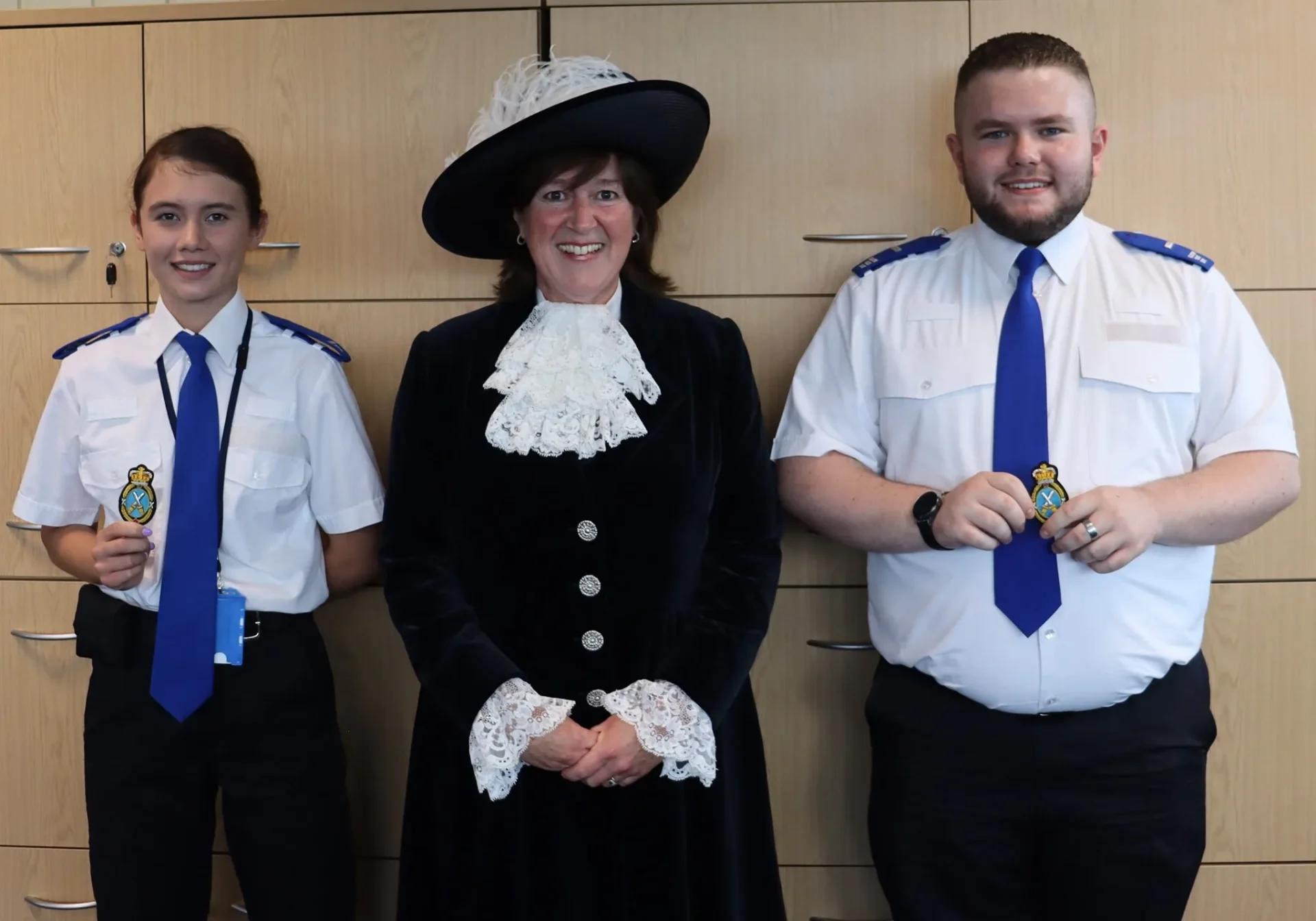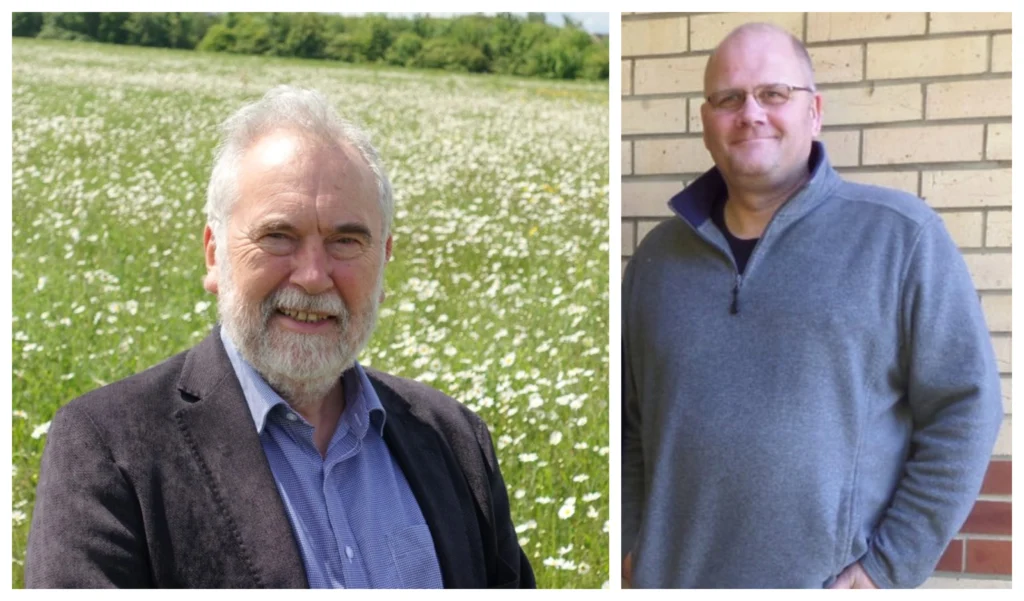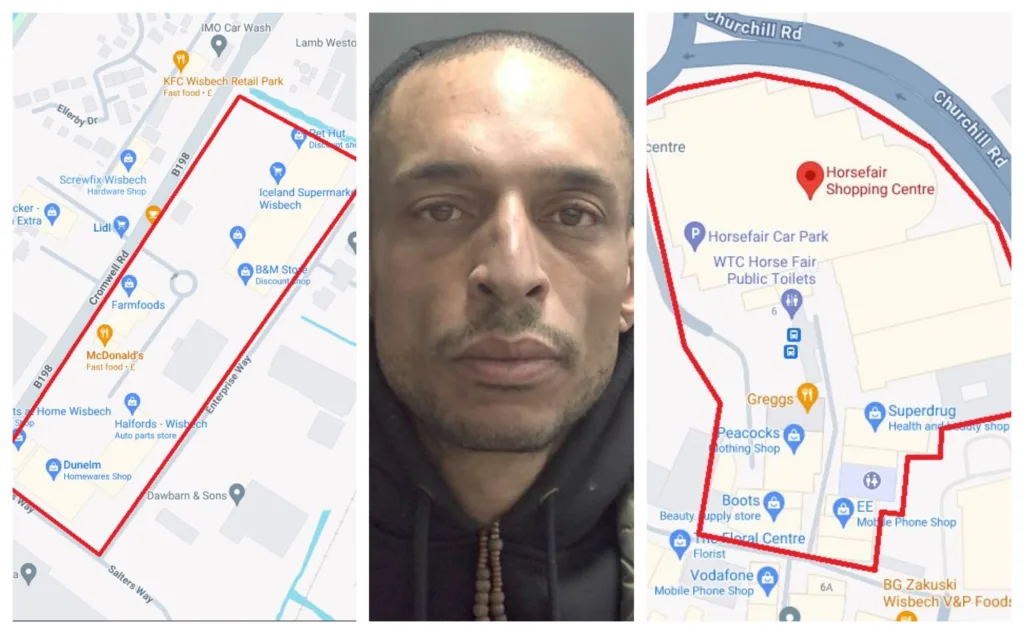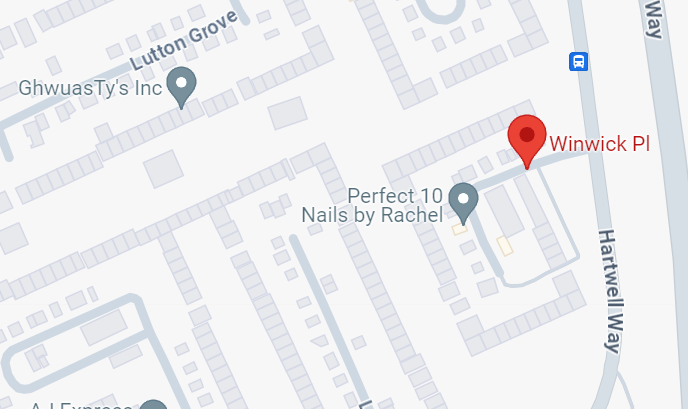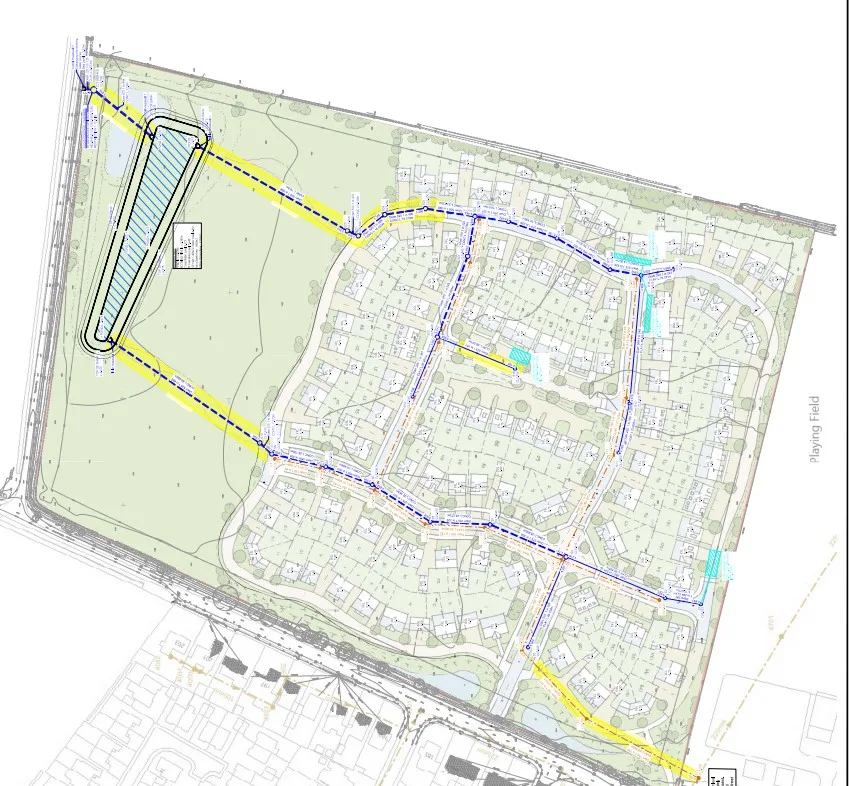Billy Cunningham was 14 when he first became a volunteer police cadet in Wisbech in May 2019.
In June 2020 he was made the only cadet sergeant across Cambridgeshire and in July the following year he was awarded the honour of becoming a High Sheriff cadet.
Billy was one of two volunteer police cadets to be appointed as ‘sheriff cadets’ to Cambridgeshire High Sheriff Caroline Bewes.
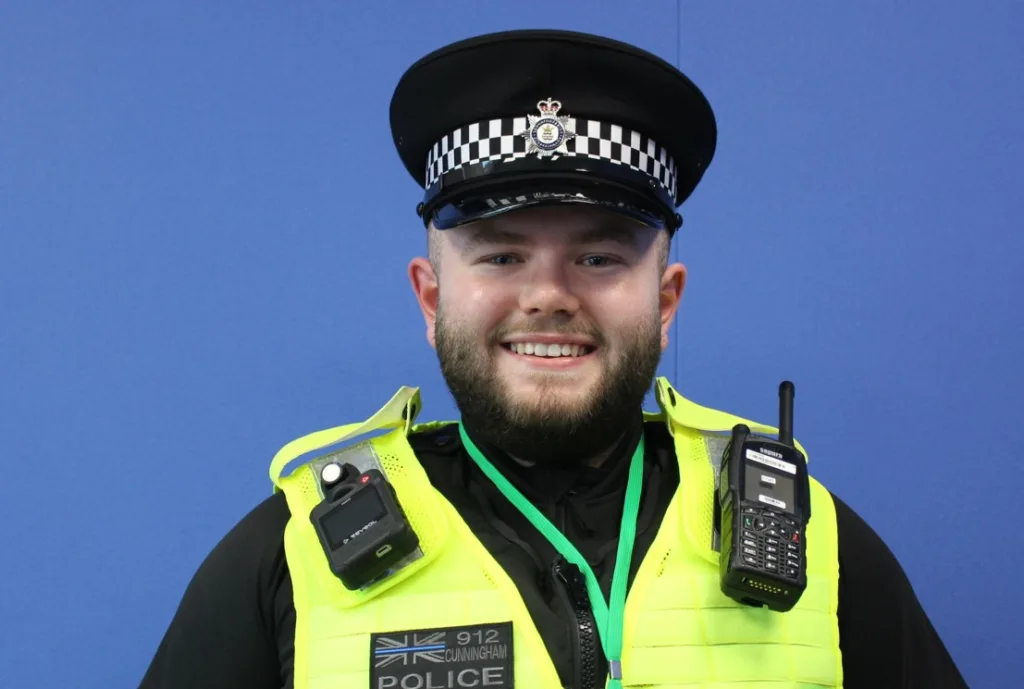
Billy and Jade-Lee Davis nominated by their cadet leaders for their self-confidence, discipline, and support to the force.
The newly created role of High Sheriff cadet was introduced to provide assured and professional support for the High Sheriff.
Billy has often been praised for his work and is a past winner of cadet of the year at Cambridgeshire police annual awards ceremony.
“He shows great commitment, outstanding dedication and enthusiasm to his unit and is an inspiration to others,” said chief constable Nick Dean.
Billy says he joined the cadets as his first step towards a policing career.
He described the volunteer cadets to be like “one big police family.”
“I’m home educated so I have plenty of free time, and what better way to spend it then expanding my career path into the police,” he said.
“I would definitely recommend volunteering.”
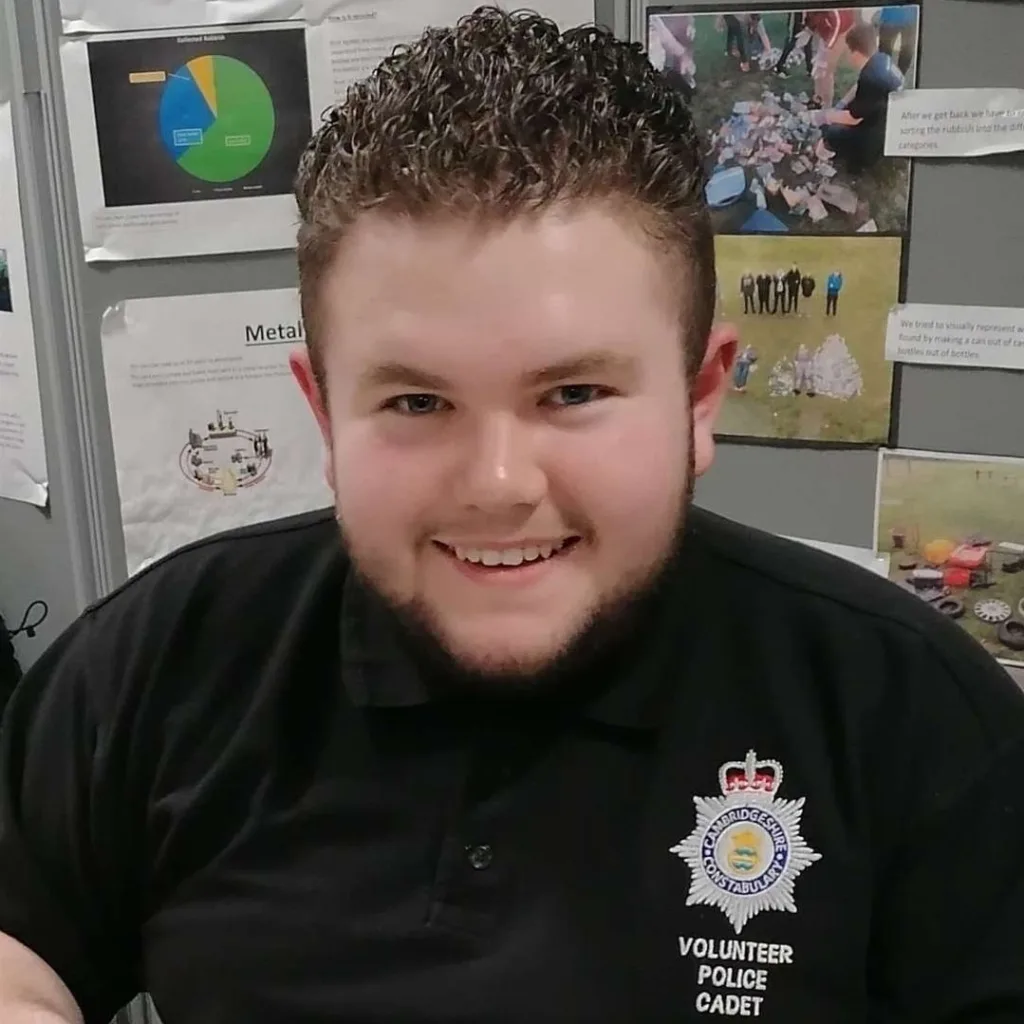
“I’m from a gypsy traveller background and the cadets have accepted me like any other cadet, and I have made my way up to become one of the first cadet sergeants for Cambridgeshire police.”
When Billy first announced to his family and friends that he wanted to be a police officer it’s fair to say some eyebrows were raised.
Coming from a traveller background, it wasn’t necessarily a typical career choice.
But his mother was very supportive, and Billy was keen to bring about change and be a trailblazer for other traveller children to consider policing as a career.
Now Billy has begun training to become a fully-fledged, full time police officer.
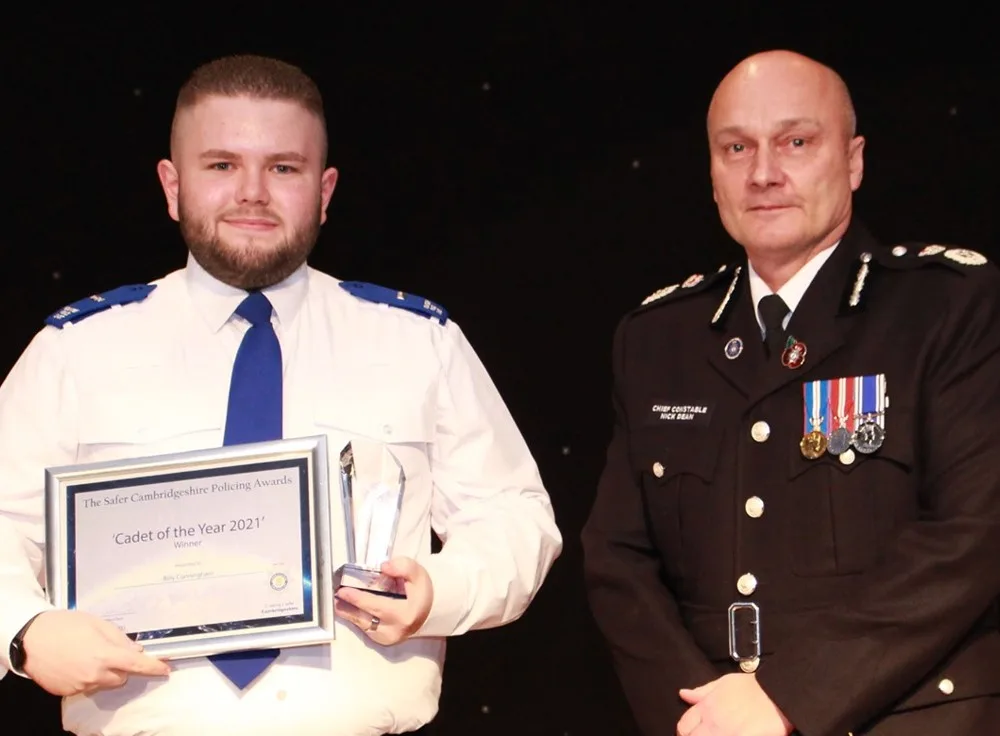
“In general, there aren’t many police officers from gypsy traveller backgrounds, which made it feel daunting for me to join, but also motivated me to be the change and to show that you can have a career in policing despite the stigma,” he said.
“I want to create change, not only for my community but for everyone, from all walks of life, and show young gypsy travellers that we can have a career in policing and to not be afraid of what everyone else thinks.
“When I told my mum I wanted to be a police officer she was fully supportive and even paid more than £50 in one week transporting me to and from cadet events. She always knew that becoming an officer was my next big goal and when I got in, she was just as excited and proud as I was.
“I wasn’t that nervous if I’m honest, I knew this was what I wanted to do, and I’ve always known I was destined for a different lifestyle.
“I have honestly lost contact with a few family members but the initial reaction from some was shock to say the least!”
Billy said: “I thoroughly enjoyed my time as a volunteer police cadet. I gained new skills and huge amounts of policing knowledge that has helped me start my training as an officer.”
Billy is following the traditional pathway to becoming a police officer – the initial police learning and development programme (IPLDP).
He is due to pass out in front of friends and family at police headquarters in Huntingdon this August.
He is also continuing his passion for the VPCs and is volunteering two evenings a week as a cadet leader for both the Wisbech and Peterborough units.
With new additions like Billy, last month Cambridgeshire Constabulary became one of the first forces in the country to announce it had met its target under the national 20,000 officer recruitment drive.
A recent intake of officers on the constabulary’s degree-holders pathway pushed the headcount to 1756 officers, comfortably reaching the 1732 target.
Recruitment is still open, with several different pathways to becoming a police officer.
They include the Police Constable Degree Apprenticeship (PCDA), which is aimed at people without a degree and is a three-year apprenticeship involving a combination of in class learning and on-the-job experience.
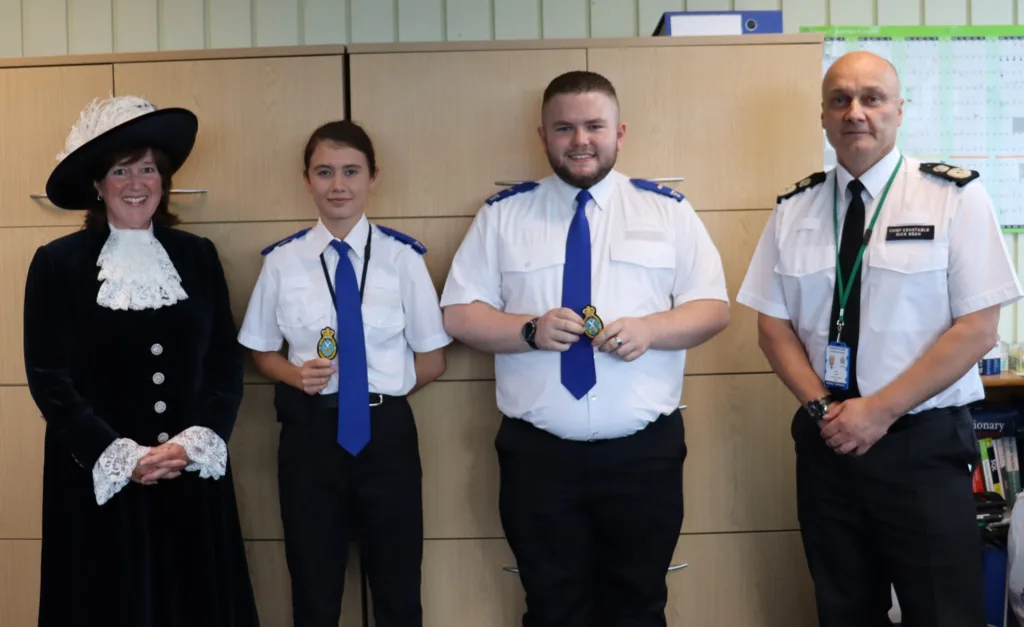
The Degree Holder Entry Programme (DHEP) is for those who already hold a degree, and the Initial Police Learning and Development Programme (IPLDP+), is the well-established traditional programme which takes two years to complete.
Visit the police website for more information about joining the police.
FACT FILE
Founded in 2014, the Gypsy, Roma, and Traveller Police Association (GRTPA) exists to support Gypsy, Roma, and Traveller personnel within the police service.
Its aim is to raise awareness and understanding of the key issues the Gypsy, Roma, and Traveller community face, improve community policing methods and reduce incidences of prejudice and racism.
There’s nothing to prevent an applicant without a fixed address from applying but the police will need to be satisfied that they can verify information about the applicant in line with guidance issued by the College of Policing.
To become a police officer, you’ll have to pass a vetting process. As part of this, they’ll run checks on your home address and any addresses resided at in the past five years.


